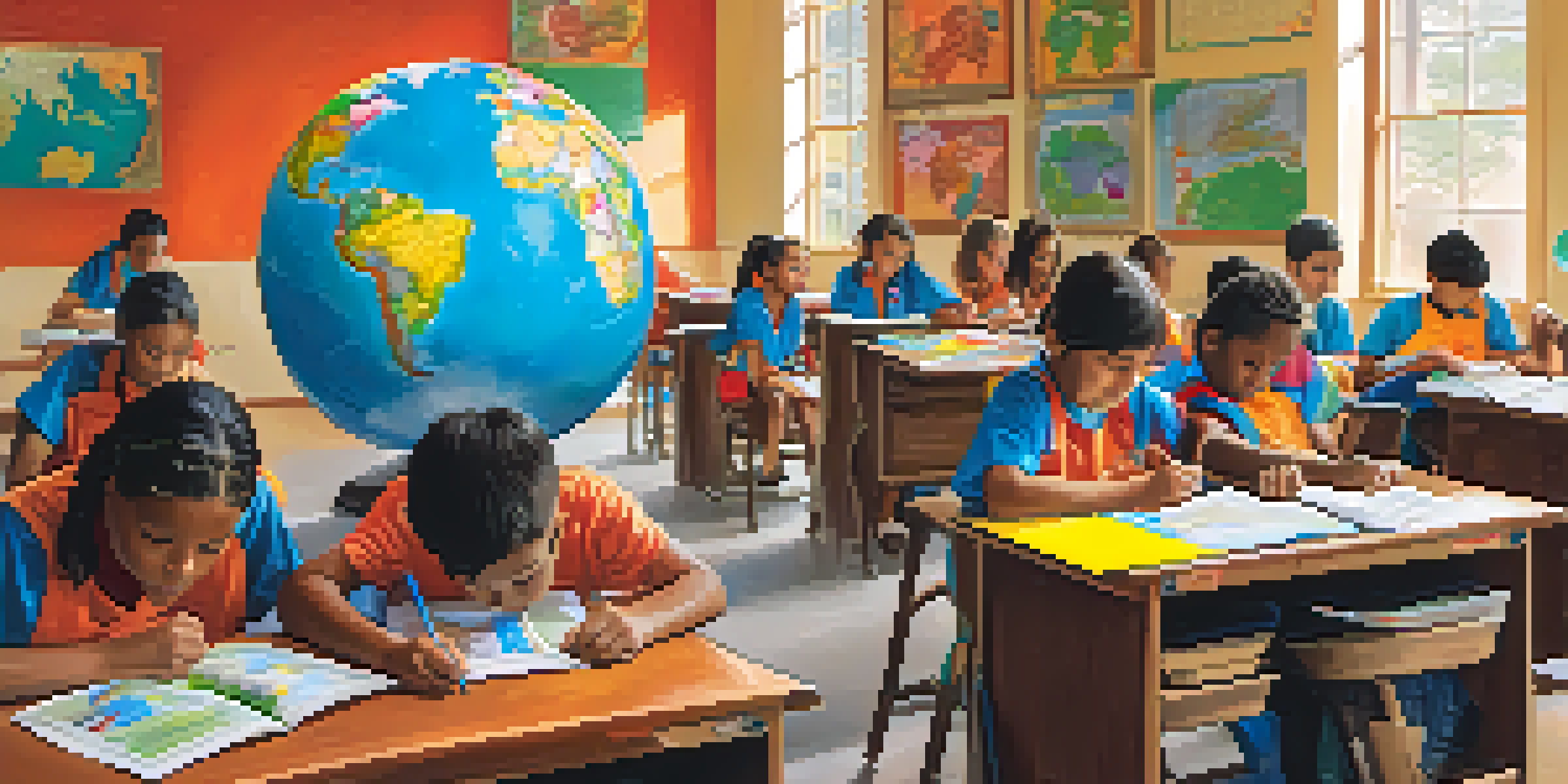Global Education and the Rise of Lifelong Learning

Understanding Global Education and Its Importance
Global education encompasses teaching and learning that is relevant across borders, emphasizing the interconnectedness of all cultures. It prepares individuals to navigate an increasingly globalized world, equipping them with skills that transcend geographical boundaries. As we face global challenges like climate change and social inequality, understanding diverse perspectives becomes crucial.
The Shift Toward Lifelong Learning
Lifelong learning refers to the continuous, voluntary, and self-motivated pursuit of knowledge for personal and professional development. In today's fast-paced world, where technology and industries evolve rapidly, the need for upskilling and reskilling is more important than ever. This shift reflects a recognition that education doesn’t stop at graduation; rather, it’s a lifelong journey.
Global Education's Vital Role
Global education fosters understanding and skills necessary to tackle worldwide challenges.
The Role of Technology in Education
Technology has revolutionized education, making learning more accessible and engaging. Online platforms and digital resources allow learners from all backgrounds to access high-quality materials, regardless of location. Additionally, technologies like AI and virtual reality create immersive learning environments that enhance understanding and retention.
The Benefits of Lifelong Learning
Engaging in lifelong learning offers numerous benefits, including increased employability and adaptability in the workforce. It fosters personal growth, allowing individuals to explore interests and passions beyond traditional education. Furthermore, it contributes to mental well-being by keeping the mind active and promoting a sense of purpose.
Lifelong Learning is Essential
Continuous education enhances personal growth and adaptability in a rapidly changing job market.
Challenges to Global Education Initiatives
Despite its potential, global education faces several challenges, such as unequal access to resources and varying educational standards. In some regions, socioeconomic factors hinder individuals from pursuing educational opportunities, limiting their options for lifelong learning. Addressing these disparities is essential to ensure equitable access for all learners.
Examples of Successful Global Education Programs
Programs like UNESCO’s Global Education Monitoring Report highlight successful initiatives that promote education for all. These programs showcase innovative approaches to teaching that embrace cultural diversity and inclusion. By sharing best practices and success stories, we can inspire further developments in global education.
Technology Transforms Learning
Digital tools make education more accessible and engaging, offering immersive experiences to learners.
The Future of Lifelong Learning
As the landscape of work continues to evolve, the future of lifelong learning looks promising. Organizations are increasingly recognizing the value of continuous education and are investing in training programs for employees. This trend not only benefits individuals but also enhances organizational resilience and innovation.
Conclusion: Embracing a Global Learning Mindset
Adopting a global learning mindset encourages individuals to embrace curiosity and adaptability in an ever-changing world. By fostering a culture of lifelong learning, we can empower people to tackle complex global issues and contribute positively to society. Ultimately, education should be a shared journey, enriching lives and building a more cohesive world.